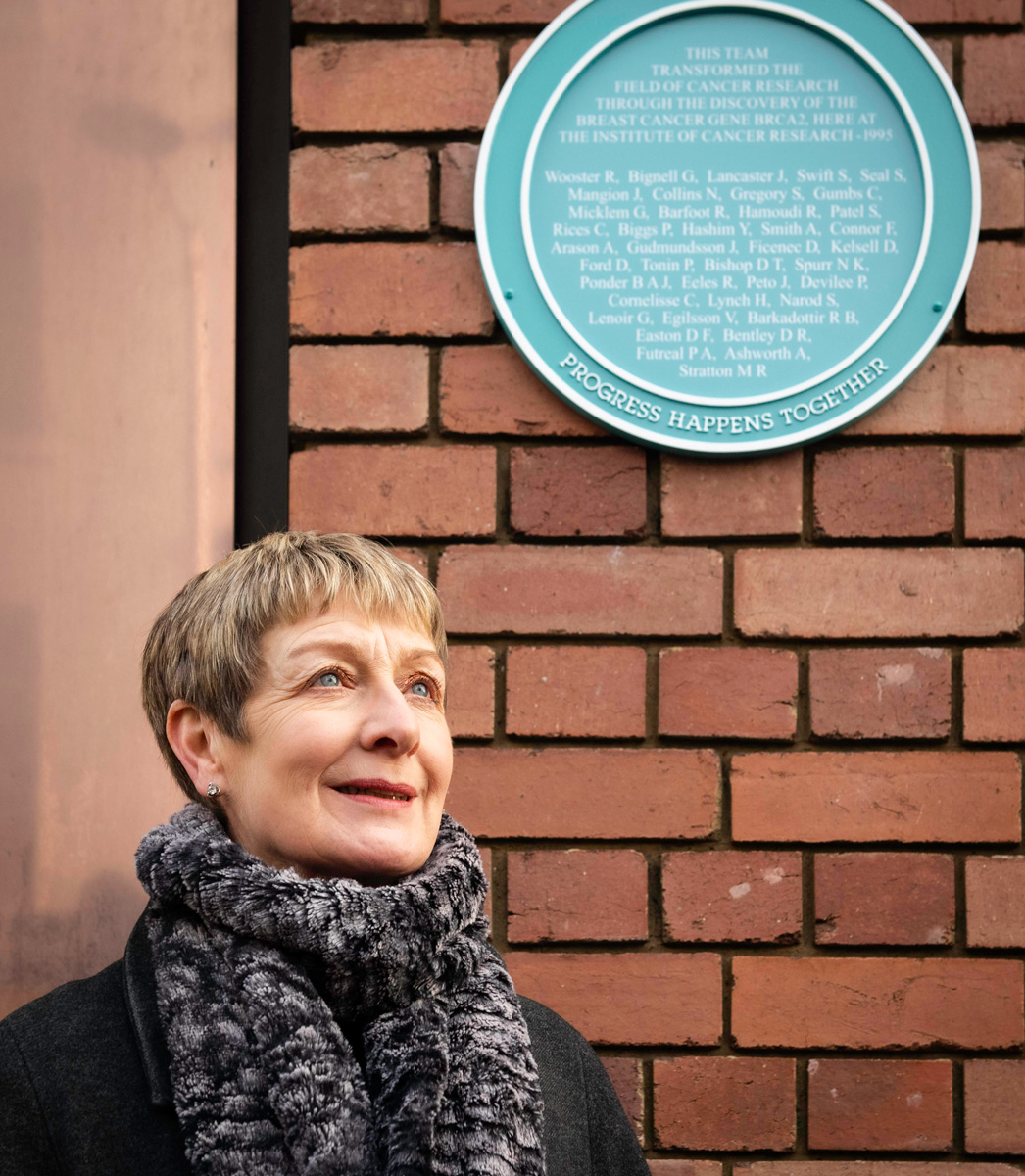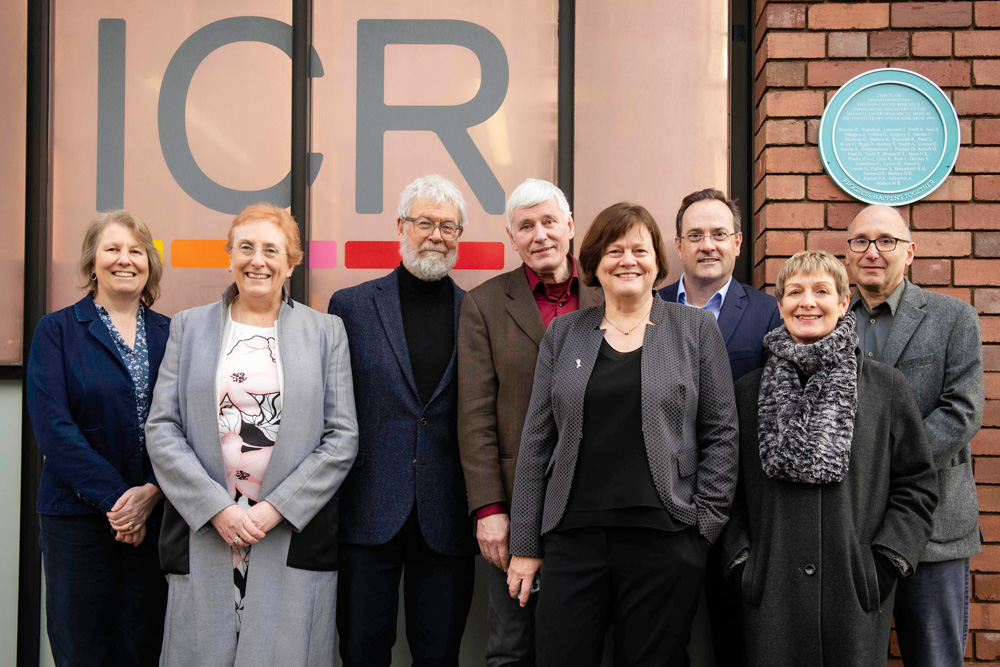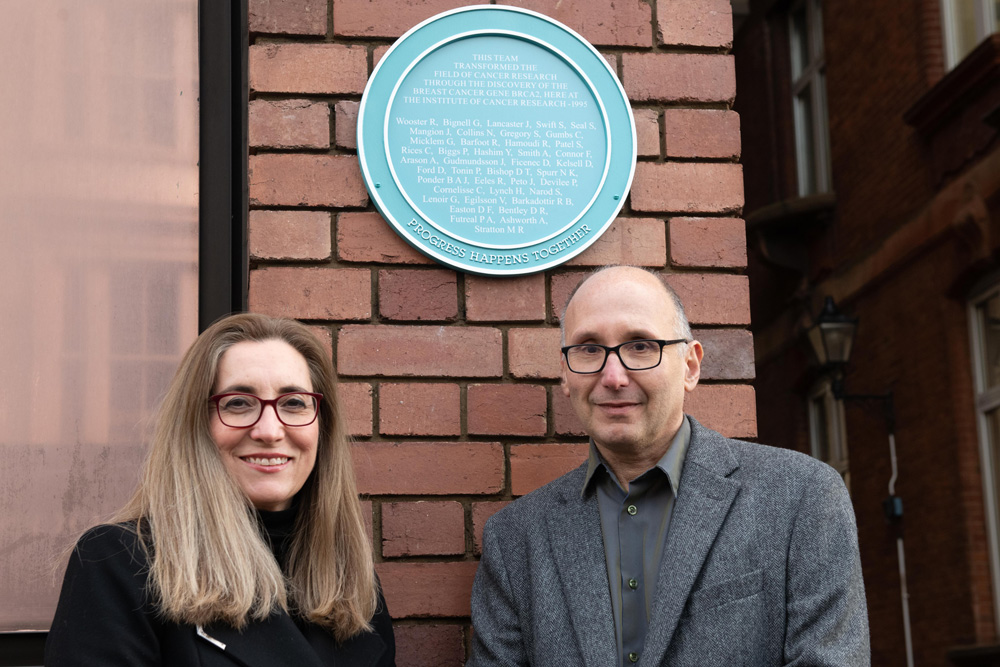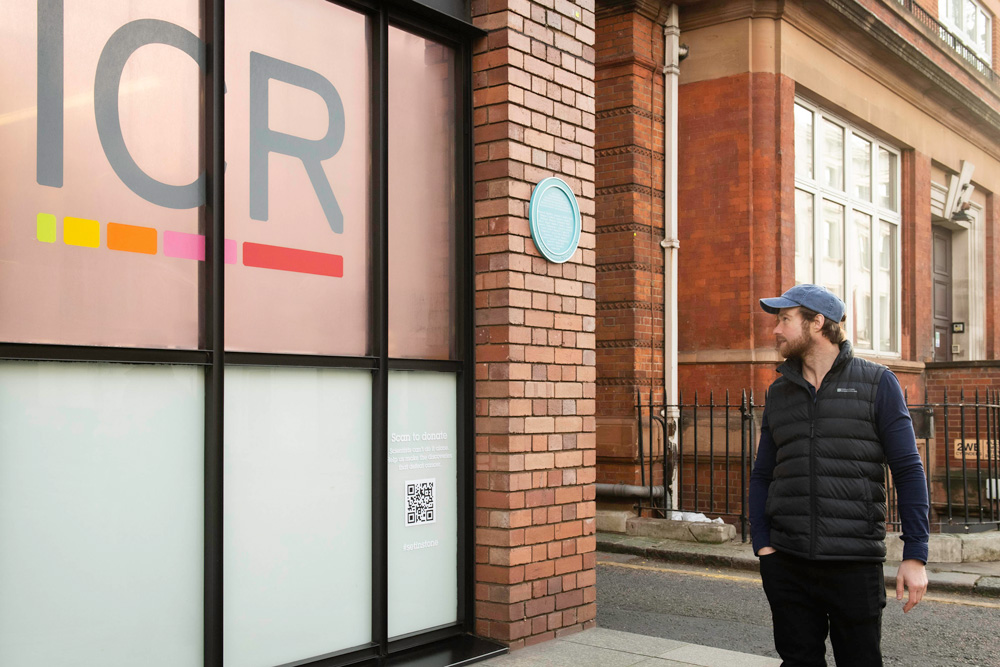The world often focuses on the lone scientist. We think it’s time for change.
Alejandra Solache
Senior Vice President, Research & Development
8 min read
of UK adults thought all scientific breakthroughs happened as a result of one or two geniuses
What comes to mind when you think about a scientific breakthrough?
A single lab-coated figure working through the night?
If that’s the case, you’re not alone.
We commissioned research and found that 61% of UK adults thought all scientific breakthroughs happened as a result of one or two geniuses.1
This is despite the trend to larger collaborations across many scientific fields. ‘Big science’ and ‘team science’ continue to gain traction, but our perceptions of the ‘collective achievement’ and the ‘scientific community’ remain focused on the individual.
Science is more interdisciplinary and collaborative than ever, which we can probably all agree is a great thing; we know that large teams and diverse teams can approach problems from new angles and can produce more impactful work. 2-4
But somehow, this is lost in translation when it comes to acknowledging and celebrating the many people in the team that may have contributed. Encouragingly, 74% of the research respondents agreed that more should be done to celebrate the teams behind these breakthroughs.
A great example of how larger teams can achieve more by working together is the team that identified the breast cancer susceptibility gene, BRCA2 5. 41 individuals were all working towards this common goal, and they achieved a landmark feat in cancer research. The discovery of this gene led to genetic testing in breast, ovarian and prostate cancer, enabling better diagnostics, prevention, and care.
Discovery of the gene has also been a building block for further research and paved the way for the development of therapies targeted at BRCA-associated cancers (PARP inhibitors).

Why we need to do more to celebrate teams in science
So many prizes in science are not geared to recognizing teams. Prizes such as the Nobel and Lasker awards are limited to three individuals or less per achievement. However, celebrating teams in science is a crucial step towards more collaborative science.
The problems the research community is tackling are more complex and involve more data than ever. Working in larger collaborations, with more diverse teams and across borders, has become a necessity for finding solutions for society’s biggest issues (for example, COVID-19).
Several organizations have already begun to lead the charge in recognizing the contributions of teams. Institutions like Imperial College London and Cancer Research UK have introduced narrative CVs, which aim to improve research culture by moving away from journal-based metrics and enabling researchers to evidence their wider contributions to research.
We’ve also seen the launch of new accolades designed to recognize collaborations and multidisciplinary work, such as the American Association for Cancer Research Team Science Award and the introduction of several team awards from the Royal Society of Chemistry.


We believe recognitions like this should become more commonplace. That’s why we’ve launched a new type of commemorative plaque featuring not one or two names responsible for a discovery, but the whole team. And in honor of World Cancer Day, we started with the incredible team behind the discovery of the BRCA2 gene. Located at the Chelsea and Sutton sites of the Institute of Cancer Research (ICR), where the gene was discovered, the plaques commemorate a landmark team achievement in modern science.
We hope that these plaques will help to shift perspectives on how we credit scientists and help to spur a movement that sees whole teams of scientists celebrated for their work. Because it’s our belief that celebrating diverse teams of scientists, and acknowledging everyone’s contribution, is what will help us create a positive, inclusive and productive future for science.

There's still more progress needed
The scientific community needs everyone’s input so that we can keep making progress. By bringing together diverse ideas and viewpoints, we can work towards better outcomes.
Read more about the invaluable work that the ICR does to advance cancer research and find out how you can help future teams do great work below.
See the plaques for yourself
The Institute of Cancer Research, London
237 Fulham Road, London SW3 6JB
References
1. Survey of 2,061 UK adults conducted by Censuswide between 30.09.22-3.10.22.
2. Wuchty, S., Jones, B. F. & Uzzi, B. The increasing dominance of teams in production of knowledge. Science 316, 1036–1039 (2007). https://doi.org/10.1126/science.1136099
3. Van Noorden, R. Interdisciplinary research by the numbers. Nature 525, 306–307 (2015). https://doi.org/10.1038/525306a
4. Yang, Y., Tian, T. Y., Woodruff, T. K., Jones, B. F. & Uzzi, B. Gender-diverse teams produce more novel and higher-impact scientific ideas. Proceedings of the National Academy of Sciences 119, (2022). https://doi.org/10.1073/pnas.2200841119
5. Wooster, R., Bignell, G., Lancaster, J. et al. Identification of the breast cancer susceptibility gene BRCA2. Nature 378, 789–792 (1995). https://doi.org/10.1038/378789a0

 Back
Back